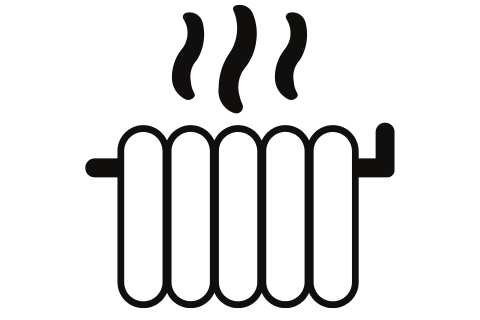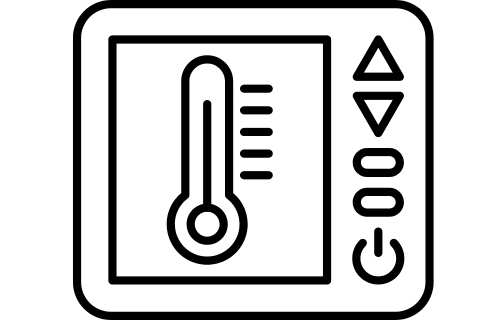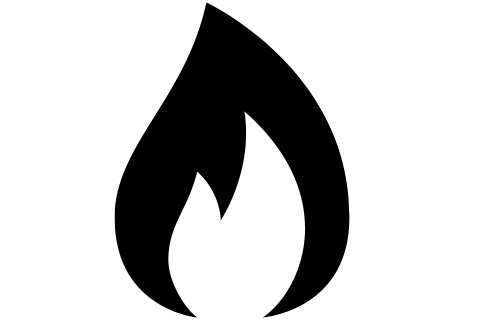Imagine this: It’s a chilly winter morning and you’re all set for a comforting hot shower. You turn on the tap and… it’s a cold stream that greets you.
No hot water from the boiler! An annoying situation, isn’t it? But don’t despair just yet. The good news is that this common problem can be attributed to a variety of causes, each with their solutions, which we will explore in this enlightening journey. So, let’s begin!
Get new boiler quotes online >
Why is there no hot water from my boiler?

- Main Reasons For No Hot Water – Gas supply issues, electrical supply troubles, pilot light problems and thermostat inconsistencies can all lead to a lack of hot water.
- Secondary reasons – Leaky tanks and pipes, heating element failures or diverter valve defects should be addressed by a professional.
- How to stop having no hot water – Regular inspections and preventive maintenance are recommended for a reliable hot water supply.
No Hot Water But Heating Is Working: Why Is This Happening With My Boiler?
Main Reasons For No Hot Water
Gas supply issues, electrical supply troubles, pilot light problems, thermostat inconsistencies, and a misconfigured boiler timer can all lead to a lack of hot water.
Secondary Reasons
Leaky tanks and pipes, heating element failures, or a faulty diverter valve should be addressed by a professional.
How to Stop Having No Hot Water
Regular inspections and preventive maintenance are recommended for a reliable hot water supply. Additionally, consult the boiler’s manual for specific troubleshooting steps.
Understanding the Issue
Common Causes of No Hot Water from Boiler
No hot water from your boiler can be a frustrating experience, especially during the colder months. There are several common causes of this issue, including low boiler pressure, faulty diverter valves, and frozen pipes. It’s essential to identify the root cause of the problem to resolve it efficiently.
In this section, we’ll explore the common causes of no hot water from your boiler and provide guidance on how to troubleshoot and fix the issue.
Low boiler pressure is a frequent culprit. If the pressure gauge on your boiler shows a reading below 1 bar, it’s likely that low pressure is preventing your boiler from generating hot water. Repressurising the boiler might solve the problem.
Faulty diverter valves can also be a reason for no hot water. These valves direct the flow of hot water to either your taps or your heating system. If the valve is stuck or broken, it might not be able to switch between heating and hot water modes properly.
Frozen pipes are another common issue, particularly in winter. If the pipes leading to or from your boiler are frozen, the water flow can be blocked, preventing hot water from reaching your taps. Thawing the pipes carefully can restore your hot water supply.
Checking the Basics
Ensure Electricity, Gas, and Water Supplies are On
Before diving into more complex troubleshooting, it’s essential to ensure that the basic utilities are functioning correctly. Start by checking the power supply.
Turn on your lights and sockets to confirm that electricity is available. If your boiler has a display, it should be lit up. Next, check your fuse box to ensure all fuses are in the correct position. If a fuse has tripped, reset it.
Next, verify your gas supply. Run a tap and turn on another gas appliance, such as a gas stove, to ensure that gas is flowing to your home. If these appliances are not working, the issue might be with your gas supply rather than the boiler.
Finally, confirm that you have a water supply by running a tap. If water is not flowing, there might be an issue with your water supply.
Ensuring that these basic supplies are on and functioning can often resolve the no hot water issue or at least help you identify the root cause.
No Hot Water Due to Gas Supply Issues
Gas supply problems are often a common cause of the absence of hot water. From low gas pressure to faulty valves, and even gas leaks, the culprits are many.
Each of these can disrupt your hot water supply, turning your warm shower dreams into a chilling reality, especially when your hot water faucet fails to produce hot water at the desired temperature.
Your first step? Check the connections, gas valve, and inspect for any gas leaks in your boiler. Also, if other gas appliances are not functioning correctly, it’s likely that the issue lies with the gas supply rather than the boiler.
Gas combi boilers can sometimes have issues where the boiler fires up but fails to heat water. When in doubt, always consult a professional. Keep in mind that safety must always be prioritised during gas leaks.
If the central heating is functioning correctly but the hot water is not, the hot water thermostat control should be checked. On the other hand, if the gas boiler isn’t producing hot water, a potential cause could be a gas line leak.
Suspect a gas leak? Don’t hesitate to call your utility company. Additionally, check if the boiler fires up when the heating is expected to be on.
Electrical Supply Troubles Can Cause No Hot Water in Gas Combi Boiler
Switching our focus now to electrical supply issues. These can be just as disruptive as gas supply issues when it comes to your hot water supply. In fact, even a recent power cut can cause the boiler to revert to factory settings and not function correctly.
Begin your troubleshooting journey by verifying the availability of electricity. Check the circuit breakers controlling the power to the boiler.
If you find the circuit breaker has tripped, reset it or replace the fuse. But what if the circuit breaker trips again after resetting? That’s your cue to call a qualified electrician.
Incorrect clock and timer settings on your boiler might also be the cause of a lack of hot water, even if the boiler is functioning correctly. Hence, it’s necessary to recheck your boiler’s settings.
Incorrect boiler timer settings can also cause a lack of hot water due to misconfigurations or technical faults. But remember, if all these checks leave you still without hot water, don’t hesitate to seek professional help.
Pilot Light Problems
Shifting our attention, we address the issue of pilot light problems. The pilot light is a small gas flame that is kept lit to ignite the main burner of your gas boiler.
The pilot light is essential for the boiler to start up. If it goes out, hot water won’t be available. The pilot light must be functioning for the boiler to generate hot water.
So, how do you know if the pilot light is the troublemaker? Well, the absence of a small blue flame in the boiler is a clear indication that the pilot light is out. If this happens, you’ll need to relight it. However, be sure to refer to the manufacturer’s instructions for relighting.
But what if the pilot light keeps going out or an error code presents itself when you open the boiler cupboard? In such cases, it is recommended to contact a professional, as the issue could be more complex.
Lack Of Hot Water by Thermostat Inconsistencies and Boiler Pressure

Shifting our focus to thermostat inconsistencies. A thermostat plays a vital role in controlling the boiler hot water flow temperature of your water. If it’s switched to ‘Off’ or set at a lower temperature, you might face a lack of hot water.
So, how to troubleshoot this issue? Start by checking the thermostat settings. If it’s set lower than normal, simply adjust the temperature to a higher value.
Thermostat inconsistencies can affect both hot water and heating. However, if adjusting the temperature of radiators or hot water does not produce the desired effect, it’s time to call an engineer.
Remember, a damaged thermostat or a tripped high-temperature cutoff switch can also cause a lack of hot water. In such cases, it’s best to replace the thermostat or the switch to restore hot water supply.
Leaky Hot Water Tanks & Pipes
Continuing to leaky hot water tanks and pipes, a decrease in boiler pressure due to leaks in the central heating system could result in losing hot water from taps, making you lose hot water.
If you notice wet patches around the tank or pipes, it’s time to inspect for leaks. Check the appliance’s connections, valves, and the pipes themselves. However, if the tank itself is leaking, you will need to replace the entire tank.
Leaks are not just detrimental to your hot water supply but can also lead to significant water damage if left unattended. Therefore, if you spot a leak, it’s advisable to contact a qualified plumber to address the issue.
Heating Element Failures
Continuing, we examine the function of heating elements in your boiler. These are the components that heat the water in your tank. When they fail, you’re left without hot water.
So, how can you tell if the heating elements are the problem? An element tester and a voltage tester can be used to evaluate the current to the elements and whether they are grounded. If you find your heating elements to be faulty, they will need to be replaced.
Remember, always ensure that the boiler is completely turned off before replacing the heating elements. Safety should always be the priority when dealing with electrical fixtures.
Diverter Valve Defects
Next, we focus on diverter valve defects. A diverter valve links your boiler and hot water tank, regulating the flow of water to the necessary appliances. When it fails, you’re left without hot water.
So, how can you tell if your diverter valve is faulty? One of the most common symptoms is when your radiators don’t respond when the heating is activated or you don’t get hot water for washing or showering.
If you suspect that your diverter valve has failed, it’s best to call a professional. While a new one will need to be installed to restore hot water, if the boiler is old, an engineer may recommend replacing the boiler to avoid costly repairs in the future.
Insufficient Tank Capacity
Have you thought that your hot water problems could merely result from insufficient tank capacity? If your tank is too small for your household’s hot water needs, it’s going to run out of hot water faster.
The size of a water tank directly impacts your hot water supply. A larger tank can provide more hot water for a longer period of time, whereas a smaller tank may run out of hot water faster. Therefore, choosing the right size tank based on your hot water needs is important.
If you find that your current tank is inadequate, it may be beneficial to upgrade to a larger tank to meet your household’s requirements.
And remember, the best combi boilers also offer an uninterrupted supply of hot water and can result in significant energy savings, making them an energy efficient choice.
Weather-Related Challenges
Next, we shouldn’t overlook the weather’s impact on your hot water supply. Cold temperatures can have a detrimental effect on your boiler’s efficiency, and frozen pipes can sometimes cause your boiler to shut down completely.
If you suspect that your pipes have frozen due to cold weather, try pouring hot (but never boiling) water slowly over the frozen pipe. If the problem persists, it’s best to seek the help of a professional engineer.
Also, if you’re experiencing low flow rates in your combi boiler, try running the hot tap at a slower rate than usual. This can help maintain a steady supply of hot water during colder months.
Boiler-Specific Checks
Check Boiler Controls
Once you’ve confirmed that your basic utilities are functioning, it’s time to check the boiler controls. Start by ensuring that the boiler settings are correct for both heating and hot water.
Sometimes, the settings can be inadvertently changed, leading to a lack of hot water. Refer to your boiler’s manual for specific instructions on how to adjust the settings.
For those with a combi boiler, check that the diverter valve is working correctly. This valve is responsible for directing hot water to either your taps or your heating system. If it’s faulty, you might not get hot water when you need it.
If you have a system boiler, ensure that the thermostat is set correctly and functioning properly. The thermostat controls the temperature of the water, and if it’s set too low or is malfunctioning, you won’t get hot water. Adjust the thermostat settings as needed and see if this resolves the issue.
By following these steps, you can often identify and fix the problem with your hot water supply. If these checks don’t resolve the issue, it might be time to book a boiler service with a qualified Gas Safe engineer.
Preventive Maintenance Tips

As we approach the end, we present some preventive maintenance tips for a consistent hot water supply. Regular inspections, flushing the hot water tank, and scheduling professional services are all recommended.
Why is preventive maintenance essential? Well, it helps guarantee:
- A steady hot water supply
- Avert problems with no hot water
- Regular inspections and flushing of the hot water tank can also extend the life of your boiler and ensure it operates optimally.
Furthermore, arranging for professional services is important to avoid unexpected interruptions to your hot water supply. It ensures that any issues are spotted and resolved early, keeping your boiler in its best shape.
Summary
In conclusion, a lack of hot water from the boiler can be quite a nuisance, but it’s a problem that can be addressed.
From gas supply issues and electrical supply troubles to pilot light problems, thermostat inconsistencies, leaky tanks and pipes, heating element failures, diverter valve defects, insufficient tank capacity, to weather-related challenges – each of these culprits can disrupt your hot water supply.
And while some issues can be fixed with a bit of DIY, others may require professional help. So, remember to maintain your boiler regularly and don’t hesitate to call in the experts when needed. After all, a hot shower should never be a luxury!
Frequently Asked Questions
Why have I suddenly got no hot water?
It is likely that your hot water issue is due to a thermostat issue or other problems such as gas leaks, water tank leaks, gas valve failures, pilot light problems, electric heater malfunctions, faulty heating elements, an undersized tank, and even the weather conditions.
You may need to increase the temperature setting above 21°C if it has been accidentally knocked to the wrong setting.
Why is my boiler not kicking in for hot water?
It looks like the thermostat, water pressure, airlocks, diverter valve, and pump may be responsible for your boiler not kicking in. Try checking these first to diagnose the issue.
What are the implications of an inadequate tank size?
Having an inadequate tank size can result in a depletion of hot water more quickly, which can be an inconvenience to households. Upgrading to a larger tank might be the best solution to ensure there is sufficient hot water available.
What is the importance of preventive maintenance for a boiler?
Preventive maintenance for a boiler is critical to ensure a reliable hot water supply and avoid any issues with no hot water.